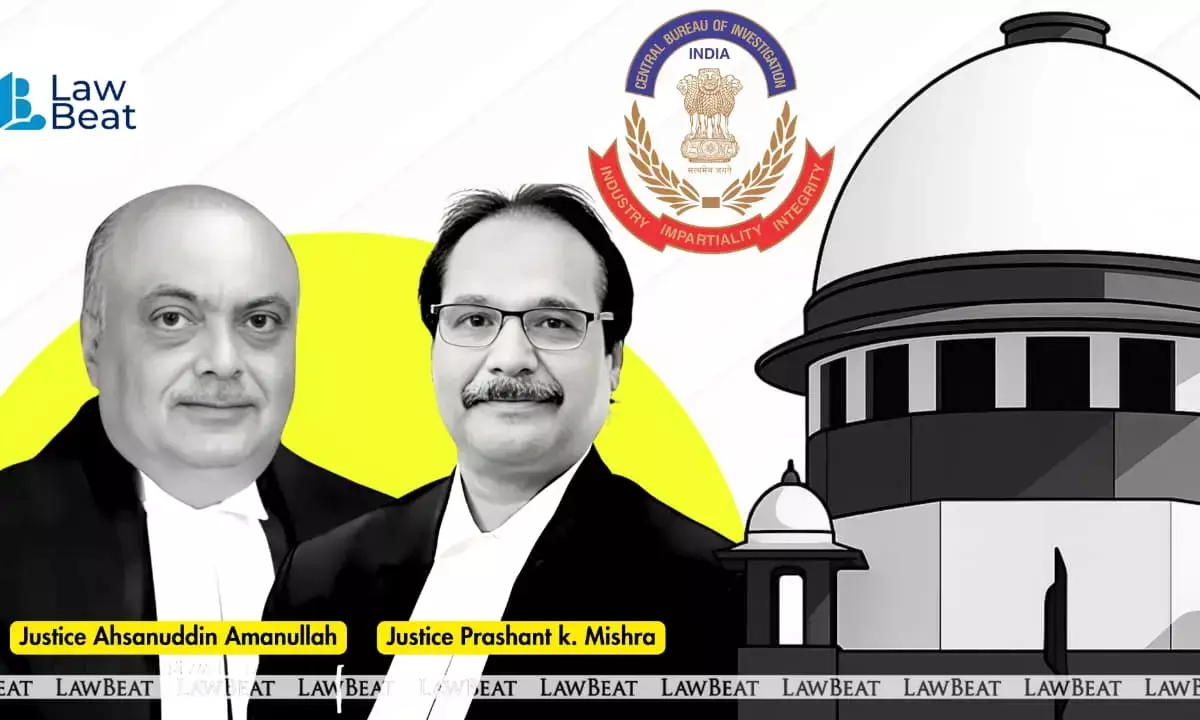HPPCL Officer Death Case: Supreme Court Questions CBI’s Competence, Calls Probe ‘Childish'

Inquiry Called ‘Childish’: SC Raps CBI Over Alleged Mishandling of Vimal Negi Suicide Investigation
The Supreme Court on Monday delivered a sharp reprimand to the Central Bureau of Investigation (CBI) , questioning the competence and investigative approach of some of its officers while hearing a plea linked to the death of Himachal Pradesh Power Corporation Limited (HPPCL) officer Vimal Negi.
The Bench of Justices Ahsanuddin Amanullah and Prashant Kumar Mishra, did not mince words as it scrutinised the CBI’s claim of “non-cooperation” by the accused and the quality of the questions posed during the investigation.
Senior Advocate Siddhartha Dave appeared for the petitioner, Desh Raj.
The matter came up during the hearing of a petition filed by Desh Raj, Director (Electrical), HPPCL, who sought anticipatory bail after being accused of contributing to the alleged mental harassment of the deceased officer.
Negi’s family has alleged that three senior officials – HPPCL Managing Director Harikesh Meena, Director (Electrical) Desh Raj and another senior official, pressured him to “do wrong”, causing severe mental distress that allegedly led him to take his life.
As the CBI defended its stance, asserting that the accused had been evasive and uncooperative, the Supreme Court interrogated the basis of this allegation. The Bench pointed to the nature of the questions recorded by the investigator and expressed astonishment at their lack of substance and forensic seriousness.
“Who is the investigator putting questions? This is childish,” Justice Amanullah remarked, reading from the case records. “If he is a senior officer, it reflects very sadly on the CBI. A question like ‘you transferred him because of this’, is this the question you are putting to the accused? And what answers do you expect from him?”, he added.
The Court stressed that an accused person’s silence cannot be construed as non-cooperation, noting that the right to remain silent is a constitutional protection. The Bench said the agency’s conclusion of “non-cooperation” had no legal basis and stemmed from a superficial approach to the inquiry.
“You say this is non-cooperation? What type of officers do you have in CBI? Absolutely bogus officers. Not fit to be in service,” the Court observed. It further described the material placed before it as “useless” and based on “surmises”, lacking anything concrete to substantiate the accusations.
Despite the gravity of the allegations made by Negi’s family, the Court found the investigation’s present trajectory inadequate. It emphasised that the CBI’s documentation failed to provide a reasonable link between the accused’s conduct and the allegations of abetment or mental harassment.
Against this backdrop, the Supreme Court granted anticipatory bail to Desh Raj, holding that the prosecution’s assertion of non-cooperation was unfounded and that there was no justification for custodial interrogation on the basis of the material submitted so far.
The Court did not, however, delve into the merits of the case itself, focusing strictly on the investigation’s procedural deficiencies as presented before it.
The Bench has made "absolute" its earlier interim protection granted to a petitioner facing a CBI investigation, noting that the individual has now cooperated with the probe.
During the hearing, Additional Solicitor General (ASG) S.D. Sanjay submitted a sealed-cover report prepared by the Central Bureau of Investigation pursuant to the Court’s earlier direction. The bench perused the contents but returned the report without comment, observing that the investigation is still underway and it would not be appropriate to record any findings at this stage.
Taking note of the petitioner’s cooperation, the Court held that its interim order merited confirmation. It directed that in the event of arrest or if the petitioner surrenders before the trial court within three weeks, he shall be released on bail subject to conditions the concerned court may impose.
The Court underscored that the petitioner must continue to cooperate with both the investigation and the trial. Any breach of this obligation would constitute grounds for cancellation of bail.
With these directions, the Special Leave Petition was disposed of. All pending applications were also closed.
Case Title: Desh Raj v. State of Himachal Pradesh
Order Date: November 17, 2025
Bench: Justices Ahsanuddin Amanullah and Prashant Kumar Mishra
